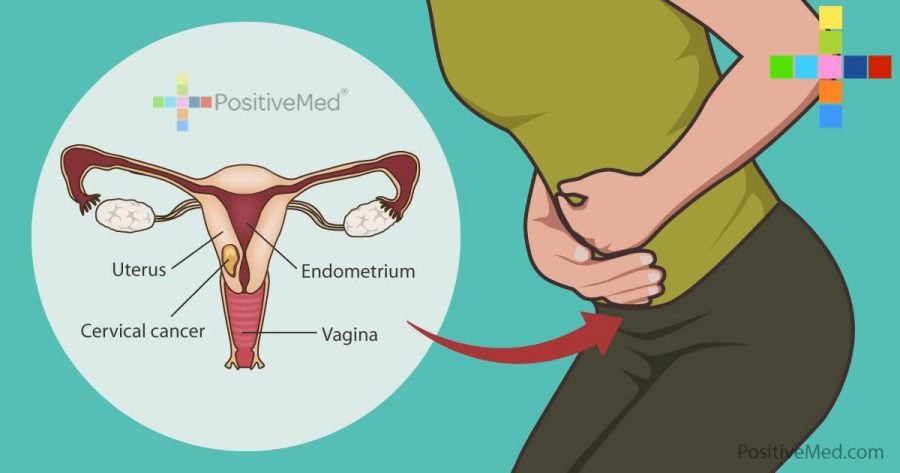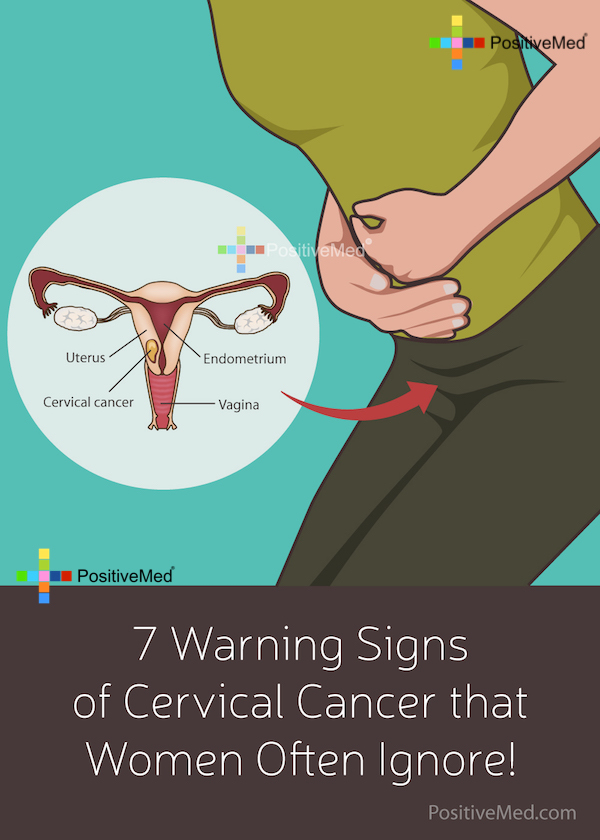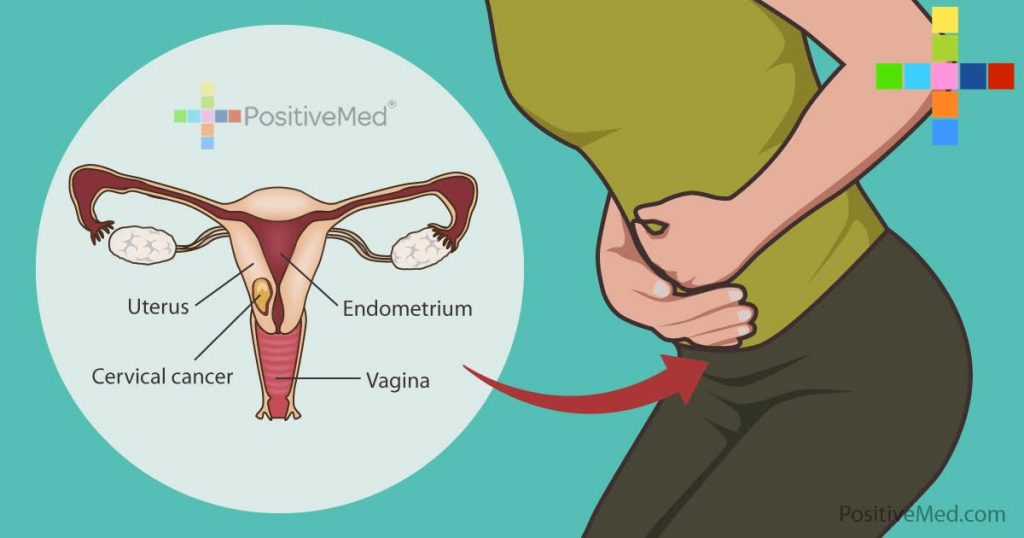7 Warning Signs of Cervical Cancer that Women Often Ignore!
Cervical cancer affects the neck of the womb where it connects to the honey pot. About 13,000 new cases of cervical cancer are diagnosed each year. Cervical cancer does not always produce symptoms in the early stages of the disease. Regular Pap smears can help to find the abnormal cells in the cervix that are the precursors of cancer.

1- Bleeding between menstrual periodsAny spotting or bleeding that occurs between regular menstrual periods should be investigated by your gynecologist to ensure that any abnormality is diagnosed and treated. Stage T1, cancer cells may be on the surface of the cervix or deeper into cervical tissue.
2- Longer or heavier menstrual periodsChanges in menstrual flow can signal T2, the next stage of cervical cancer, in which cells spread into the lady’s pot. If you notice unusual changes in flow, make an appointment to discuss the issue with your gynecologist.
RELATED ARTICLE: The Truth About Cervical Cancer
3- Bleeding after menopauseMenopause is the cessation of the menstrual cycle that signals the end of the ability to produce children. Bleeding that occurs after the menstrual cycle has stopped for a number of months should be investigated by your physician to rule out any abnormalities.
4- Bleeding after a pelvic exam at the doctorYou may notice bleeding after your annual pelvic exam. Cervical cancer can grow into nearby tissues. The use of instruments and pressure on tissues can cause growths to pull apart and bleed. The cancer may lie deep within tissue that your gynecologist may not see on visual inspection.
5- Any unusual discharge from the honey potAny unusual discharge from the honey pot can be a sign of infection or the growth of abnormal tissue that could signal the start of cervical cancer. In Stage T1, abnormal cells may slough off the cervix causing a discharge.
RELATED ARTICLE: Prevention is Quite Better Than Cure for Cervical Cancer
6- Pain or Bleeding during love-makingIn the T3 stage, the growth of abnormal tissue can spread to other areas, which can cause pain during love-making. If you notice unusual discomfort, contact your doctor for an examination to determine the cause.
7- Bowel or Urinary ProblemsIn Stage 4, the abnormal tissue has spread into the bladder or bowel, affecting the function of these organs.
Cervical cancer can be prevented with recommended Pap smear screenings and regular visits to your gynecologist to catch this disease in its earliest stages.
Pin It!









